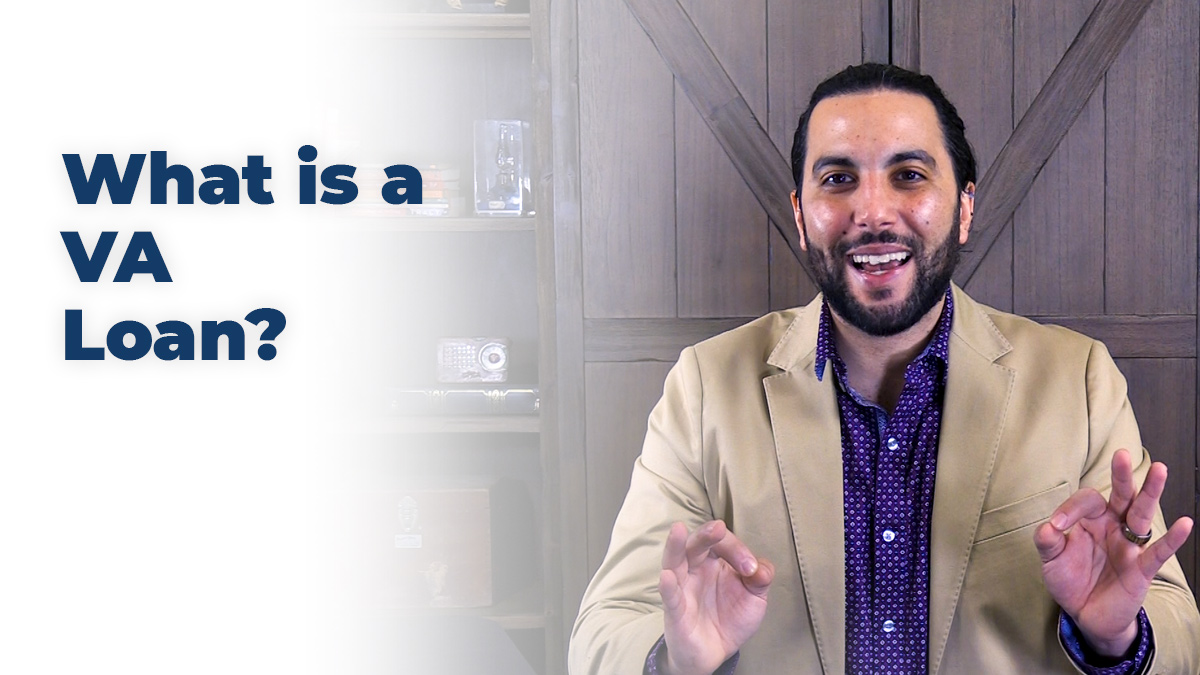In this article
VA home loans provide veterans and service members with attractive interest rates and flexible terms. A VA loan can be used for different types of properties, such as single-family residences, condos, multi-unit buildings, manufactured homes, and even new construction projects. The VA’s commitment to this program is evident, having guaranteed over 28 million loans since its inception in 1944 as part of the original GI Bill of Rights. VA loans operate similarly to conventional home loans but include substantial advantages designed to facilitate and enhance the path to homeownership for those who’ve served our country.

Watch Now
What is a VA loan?
A VA (Department of Veterans Affairs) Loan is a mortgage loan program designed to provide eligible veterans, active-duty service members, and certain members of the National Guard and Reserves with the opportunity to purchase or home with favorable terms and conditions For those that qualify, the VA Loan Program is rated as the most cost-effective mortgage. It’s important to note that while VA loans offer numerous benefits, they are subject to certain eligibility requirements. To qualify for a VA loan, you typically need to meet specific service length and duty status criteria.
Should you apply for a VA loan?
No Down Payment: One of the most significant advantages of VA loans is that they typically do not require a down payment. This makes homeownership more accessible to eligible military personnel.
No Private Mortgage Insurance (PMI): Unlike many other loan programs, VA loans do not require private mortgage insurance, which can result in cost savings for borrowers.
Competitive Interest Rates: VA loans often come with competitive interest rates, which can result in lower monthly mortgage payments.
Flexible Credit Requirements: While there are no specific credit score requirements set by the VA, lenders may have their own credit standards. However, VA loans generally have more lenient credit requirements compared to conventional loans.
Assistance with Closing Costs: The VA allows sellers to contribute towards the buyer’s closing costs, which can reduce the upfront expenses for the borrower.
Purchase of Primary Residences: VA loans are primarily intended for the purchase of primary residences, making them a suitable choice for veterans and active-duty military personnel looking to establish a home for their families.
No Prepayment Penalties: Borrowers can pay off a VA loan early without incurring prepayment penalties, allowing for more flexibility in managing their mortgage.
Guaranteed by the VA: VA loans are partially guaranteed by the Department of Veterans Affairs, which reduces the risk for lenders and enables them to offer favorable terms to veterans and service members.
Use of Entitlement: Eligible veterans and service members can use their VA loan entitlement multiple times, either for subsequent home purchases or refinances, as long as they meet certain criteria.
How does a VA loan work?
Qualifying for a VA (Department of Veterans Affairs) loan is generally considered easier compared to many other types of mortgage loans, such as conventional or FHA loans. While VA loans offer many advantages, it’s important to understand that there are specific eligibility criteria based on your military service, including service length and duty status. To qualify for a VA loan, you need a Certificate of Eligibility (COE) from the VA, which serves as proof of your eligibility.
Who qualifies for a VA loan?
A VA (Veterans Affairs) loan is a type of mortgage loan that is specifically available to eligible veterans, active-duty service members, certain members of the National Guard and Reserves, and some surviving spouses of veterans. To qualify for a VA loan, you generally need to meet the following criteria:
Eligibility: You must meet the VA’s eligibility requirements, which typically include one or more of the following:
- You are an active-duty service member.
- You are a veteran who has served a minimum period of time (typically 90 consecutive days during wartime or 181 days during peacetime, with longer service requirements for certain periods).
- You are a member of the National Guard or Reserves who has completed six years of service.
- You are a surviving spouse of a service member who died in the line of duty or as a result of a service-connected disability.
Certificate of Eligibility (COE): You will need to obtain a Certificate of Eligibility to prove your eligibility for the loan. You can obtain this through your mortgage advisor
Credit and Income Requirements: VA loans are known for being more lenient when it comes to credit requirements. A credit score of 580 or higher is often recommended for a 0% down payment.
Property Eligibility: The home you intend to purchase with a VA loan must meet certain requirements, including being your primary residence. VA loans can be used to buy single-family homes, condominiums, and some multi-unit properties (up to four units).
Funding Fee: There is a one-time funding fee associated with VA loans, which varies depending on your military status, down payment amount, and whether you’ve used the VA loan program before. In some cases, this fee can be waived for disabled veterans.
VA mortgages stand as an exceptional option for those who have served in the military. It’s numerous benefits, including no down payment, competitive interest rates, and accessible credit requirements, make it an attractive choice for achieving the dream of homeownership. To determine your eligibility and explore your VA loan options, consult with one of our mortgage advisors and embark on the path to becoming a homeowner with confidence.

Are You Ready to Make a Move?
It's FREE and takes less than a minute to see what you could get.
